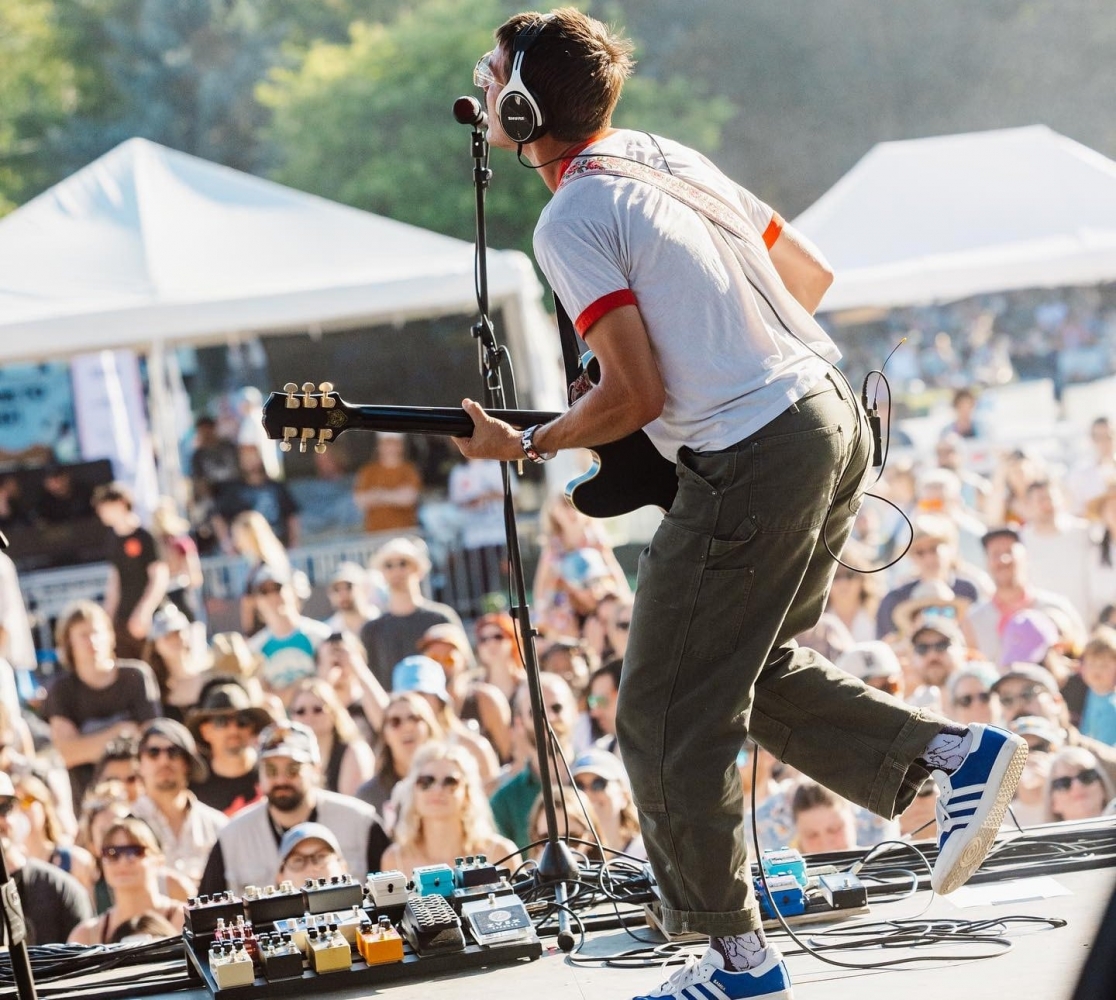

Published on: 08/28/2025
This news was posted by Oregon Today News
Description
It’s music festival season in Seattle, and while this weekend’s Bumbershoot lives on, the Pacific Northwest is haunted by ghosts of parties past.
Sasquatch!, What the Festival, and Decibel are just a few beloved local festivals that sang their last tune years ago, despite dedicated fan bases. It mirrors a national trend. In the past few years, dozens of music festivals have been cancelled. And even the biggest, most popular events are showing some signs of demand softening.
On the latest episode of Booming, KUOW’s economy team dug into why its so hard for music festivals to find their rhythm.

Risky business
In the streaming era, music festivals have become an increasingly important revenue source for artists. As CD sales dried up, musicians became more reliant on touring to make a living, a costly endeavor that only works if an artist sells enough drinks and merch.
“ We’re in the middle of a tour where we’re kind of penciling out, but these festivals are really helpful,” said Nick Carpenter, front man for the indie-country band Medium Build, ahead of his set at THING NW earlier this month. “Say you have a big run where you’re almost breaking even, and then at the last day they’re like, ‘Here’s a festival, and they’ll throw you $20,000.’ It’s like, ‘Whew, thank God.’”
Playing a music festival is a guaranteed pay day, because the event organizers agree to pay a fee when booking an artist. Instead of the artist incurring the risk on their own tour, the festival does. It’s up to them to sell enough tickets and drinks to cover their upfront costs.
It’s a significant risk, because in addition to artist fees, festival organizers front the costs for security, medical services, sanitation, and food vendors — all based on the hope that they’ll sell enough tickets to make that money back.
And there’s so much out of organizers’ control. Everything from bad weather — which shut down Bonnaroo this year — to competing events can suppress ticket sales. One bad year can put a festival out of business.
That was the case for What the Festival, a three-day dance music and arts festival held on a ranch in eastern Oregon. W. Glen Boyd, its founder, said the event was on a path to break even by steadily increasing ticket sales and revenue each year. Then in 2017, a competing festival moved in nearby. Boyd said his ticket sales plummeted, putting an end to What the Festival.
“You take it on the chin, which I did,” he said. “I wrote a check and threw a very expensive party. And so the last year I lost about $650,000 on a year that I should have broken even, or made money.”
Even the political climate can become an unforeseen risk, as organizers of THING learned. This year, Seattle Theater Group changed its model of THING to adapt to financial headwinds the industry faces.
Instead of holding a traditional three-day festival, THING put on a series of single-day events, each featuring artists in a different genre. But STG had to cancel its Latin-music themed day. STG’s Latin programming director, Laura Vilches, believes the anti-immigration climate suppressed ticket sales.

Laura Vilches, Latin programming director for Seattle Theatre Group, at THING on Aug. 9, 2025.
“ It wasn’t doing what we would normally expect to see for some of these artists … who have performed sold out shows at the Paramount, at the Neptune, at our other venues in Seattle over the years," Vilches said. “It was a very sad storm of events that happened.”
The streaming generation
Young people have always been the engine powering music festivals, with demand from the oversized millennial generation causing the industry to balloon in the mid-2000s. By 2019, there were more than a thousand music festivals in the U.S. by one estimate.
But as millennials age out of camping in the desert and into the realities of parenthood and corporate life, they’re no longer driving the same levels of demand. And the younger generation doesn’t appear to be stepping in to fill the gap.
Lizzy Butler is a college student and musician who wishes music festivals played the same role for people her age as they did for previous generations.
She said in the past people felt, “like, you need to get out, you need to go listen, like you’ve got to go find the music. The music can just kind of find you now and you don’t really have to work for it … you don’t ever have to leave your Spotify daylist.”
Brooke Vandenberg and Lizzy Butler attend THING on Aug. 9, 2025.
Algorithmic streaming is designed to serve listeners music based on their existing preferences. Experts say that can push people toward the familiar, and away from music discovery, which drew previous generations to multi-genre music festivals.
“ I think it’s honestly a missing art for younger generations to really experience the beauty and importance of live music, especially in a festival setting where it’s so diverse,” Butler said.
Tastes that favor the familiar could explain why big stadium tours like Taylor Swift’s and Beyonce’s have been absorbing the concert budgets of young people more inclined to shell out for an artist they know they’ll like rather than take a risk on a lineup full of unknown bands.

A second act for music festivals?
Adam Zacks, STG’s chief programming officer and the former producer of Sasquatch!, said declining demand for music festivals could have a silver lining.
“The good news is when we face something like this where the market’s saying, ‘Cool, we’ve had enough of this,’ is that it creates room for innovation,” he said. “So, it creates a pocket for, especially, younger people that are wanting to get into this business and think that they can see something that older generations are unable to see. That’s a really positive thing.”
Innovation is also his goal with THING. By shifting to the single-day series and moving the festival to the family-friendly venue, Remlinger Farms, he’s hoping to attract some of the millennial festival fans who are aging out of the old model.
“ It was like tailored to an older, indie-leaning KEXP sort of audience that maybe used to go to festivals, then maybe had families and weren’t able to, and now they’re coming back to it,” he said.
Whether it’s enough to sustain THING remains an open question. Zacks said ticket sales were below their goal, but that he wouldn’t be able to make any conclusions about what’s next for the festival until the final encore.
News Source : https://www.opb.org/article/2025/08/28/can-pacific-northwest-music-festivals-find-their-rhythm/
Other Related News
08/28/2025
The Main Street Promise project will rebuild 10 blocks of downtown with new sidewalks ligh...
08/28/2025
At least one firefighter arrested in Washington state while battling a blaze on the Olympi...
08/28/2025
Gardner is the most tenured SNL cast member to leave the show ahead of Season 51
08/28/2025
Back to school pictures are our favorite and it has been fun seeing students back to schoo...
08/28/2025







